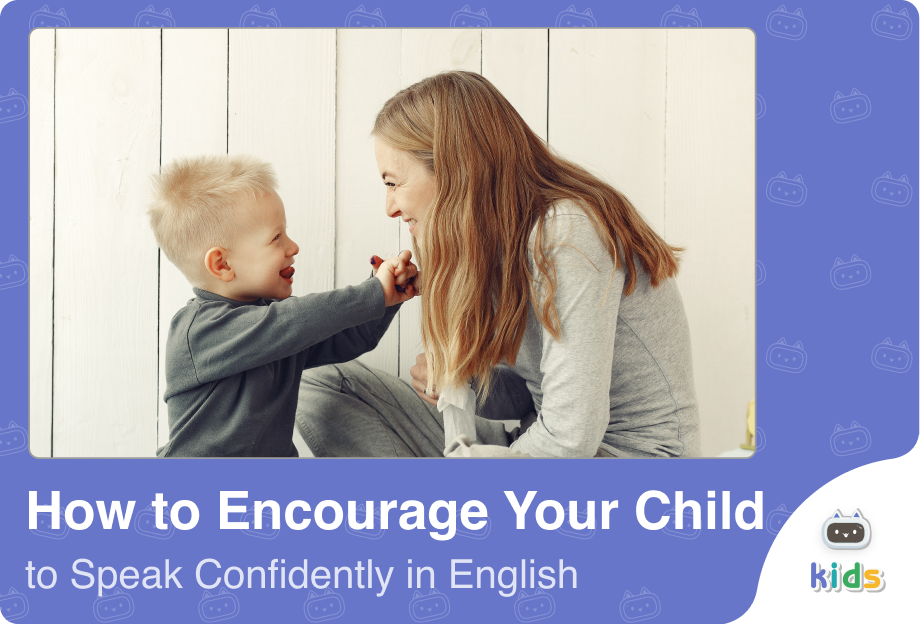Learning English can be exciting — especially when you start to understand how words work together! One of the first things every young learner needs to know is personal pronouns. These are small but powerful words that help us talk about people without repeating their names all the time.
Got confused with defining pronouns, don’t worry EnglishCentral is here for you. In this blog post we wrote about Pronouns; What is each pronoun? And how do we define them?
Learn English with EnglishCentral Kids
Every child learns best when lessons are fun, engaging, and tailored to their needs — and that’s exactly what EnglishCentral Kids delivers. With expert teachers, interactive videos, and AI-powered tools, kids not only learn English but also gain the confidence to use it in school and everyday life.
EnglishCentral Kids offers 25-minute one-on-one lessons with friendly and experienced teachers who specialize in working with children. These live sessions are designed to make learning enjoyable while focusing on the child’s level, pace, and interests. Kids also have the chance to join 40-minute group lessons, where they can practice English through games, discussions, and activities with classmates from around the world.
To keep learning exciting outside of lessons, children can explore interactive videos created especially for young learners. With the Watch, Learn, Speak method, kids practice listening, speaking, and comprehension in a way that feels more like play than study.
The experience is supported by MiMi, our AI-powered teacher, who helps children practice conversations anytime. Whether it’s roleplaying a trip to the zoo or ordering an ice cream, MiMi makes practice fun and interactive. After each session, personalized reports highlight the child’s progress, so parents can see how their child is improving step by step.
In addition, kids benefit from quizzes, vocabulary games, and word exercises that reinforce what they’ve learned. These activities turn study time into a rewarding experience that builds both language skills and self-confidence.
With EnglishCentral Kids, learning English goes beyond textbooks. Children finish their school homework more easily, speak without fear of mistakes, and achieve fluency in a supportive environment. Most importantly, they discover that learning English can be both fun and inspiring — a skill that will benefit them for life.
What Are Subject Pronouns?
Subject pronouns are the action takers of the sentence. They tell us who or what takes the action. Such pronouns include; I, you, he, she, it, we, they. Now let’s look at some examples to understand their purpose.
Examples:
In this sentence the subject is “He”. Because the one who is doing the action of running is “He”.
– They won the award.
Like the first example, the one who won the award is “They” therefore it is the subject of the sentence.
– I bought a new notebook yesterday.
In this sentence the action taker is “I”. By asking; “Who bought the notebook yesterday?” we can find the subject of this sentence.
What Are Object Pronouns?
Object pronouns are the ones who receive the action or simply one who is affected from the action. These pronouns include; me, you, him, her, it, us, them. Those pronouns can be found in the sentence by asking questions; “Whom?” or ” What?” Let’s look at some examples.
| Subject Pronouns | Object Pronouns |
|---|---|
| I | Me |
| You | You |
| He | Him |
| She | Her |
| It | It |
| We | Us |
| They | Them |
Examples:
In this sentence the object is “her” because the one who are affected from action is “her”
– The referee showed a red card to him.
In this sentence the referee is the one who takes the action and the “him” is the one who is affected by the action. In it, if we want to find the Object Pronoun we simply need to ask the question; “Whom?” and the answer would be; He has been shown a red card from the referee.
– The team leader gave them a new task.
To find the objective of this sentence we need to ask the question; “Whom are given a new task?” the answer would be; “They are given a new task by the team leader.” In this answer “they” represents “them” in our example thus “them” is the Object pronoun of this sentence.
What Are Possessive Pronouns?
Possessive pronouns are the ones that show ownership or belonging. They replace nouns to avoid repetition and indicate that something belongs to someone or something. These pronouns include; mine, yours, his, hers, its, ours, theirs. To find them in a sentence, we can ask questions like; “Whose?” or “Belonging to whom?“
| Subject Pronouns | Possessive Pronouns |
|---|---|
| I | Mine |
| You | Yours |
| He | His |
| She | Hers |
| It | Its |
| We | Ours |
| They | Theirs |
Examples:
In this sentence, the possessive pronoun is “mine” because it shows that the notebook belongs to the speaker.
– The red car is hers.
Here, “hers” indicates that the car belongs to a female person. It replaces “her car” to avoid repetition.
– Their house is bigger than ours.
In this sentence, “ours” shows possession and refers to the house that belongs to the speaker and their group.
So, possessive pronouns are the words that clearly express ownership without repeating the noun they refer to.
What Are Reflexive Pronouns?
Reflexive pronouns are the ones that reflect the action back to the subject. They are used when the person doing the action and the person receiving the action are the same. In other words, the subject acts on itself. We can usually recognize them by the ending “-self” (singular) or “-selves” (plural). Now let’s look at the examples to understand it.
| Subject Pronouns | Reflexive Pronouns |
|---|---|
| I | Myself |
| You | Yourself |
| He | Himself |
| She | Herself |
| It | Itself |
| We | Ourselves |
| They | Themselves |
Examples:
In this example, I am both the doer and the receiver of the action. If we ask the question “Who did I teach?” The answer is “myself.” This shows that the action returns to the same person — that’s why “myself” is a reflexive pronoun.
– She looked at herself in the mirror.
Here, the action of looking goes back to she. If we ask “Who did she look at?” we find the answer “herself.” It reflects the action back to the subject.
– They prepared themselves for the test.
In this sentence, they are doing the action and also receiving it. If we ask “Who did they prepare?” the answer is “themselves.” This again shows reflection of the action.
Reflexive pronouns help sentences sound clear when the subject and object refer to the same person or group, making the meaning complete and easy to understand.
Frequently Asked Questions About Personal Pronouns
Now that we know about personal pronouns, let’s look at some questions asked about them.
What are 1st, 2nd, and 3rd personal pronouns?
1st, 2nd and 3rd personal pronouns shows the ways of describing points of view.
- First person is the I/we perspective.
- Second person is the you perspective.
- Third person is the he/she/it/they perspective.
Why are personal pronouns important?
They are important because they are the smallest way to acknowledge and respect someone’s identity.
What are some common pronoun mistakes?
A common mistake with pronouns is using the wrong type of pronoun or not matching it correctly with the noun it replaces. Like; Me went to the store. When it needed to be ; I went to the store.
Why avoid personal pronouns?
Using personal pronouns pulls the focus away from the subject and makes writing sound subjective.
You can access everything your child needs to learn English on a single platform! With 25-minute live lessons guided by teachers specialized in child education, entertaining and instructive interactive videos designed for child development, vocabulary learning tools, the AI Tutor MiMi, quizzes, and interactive activities, EnglishCentral Kids offers a personalized and quality education plan tailored to your child’s needs at affordable prices. How about registering for EnglishCentral Kids now and starting your child’s English learning journey?











